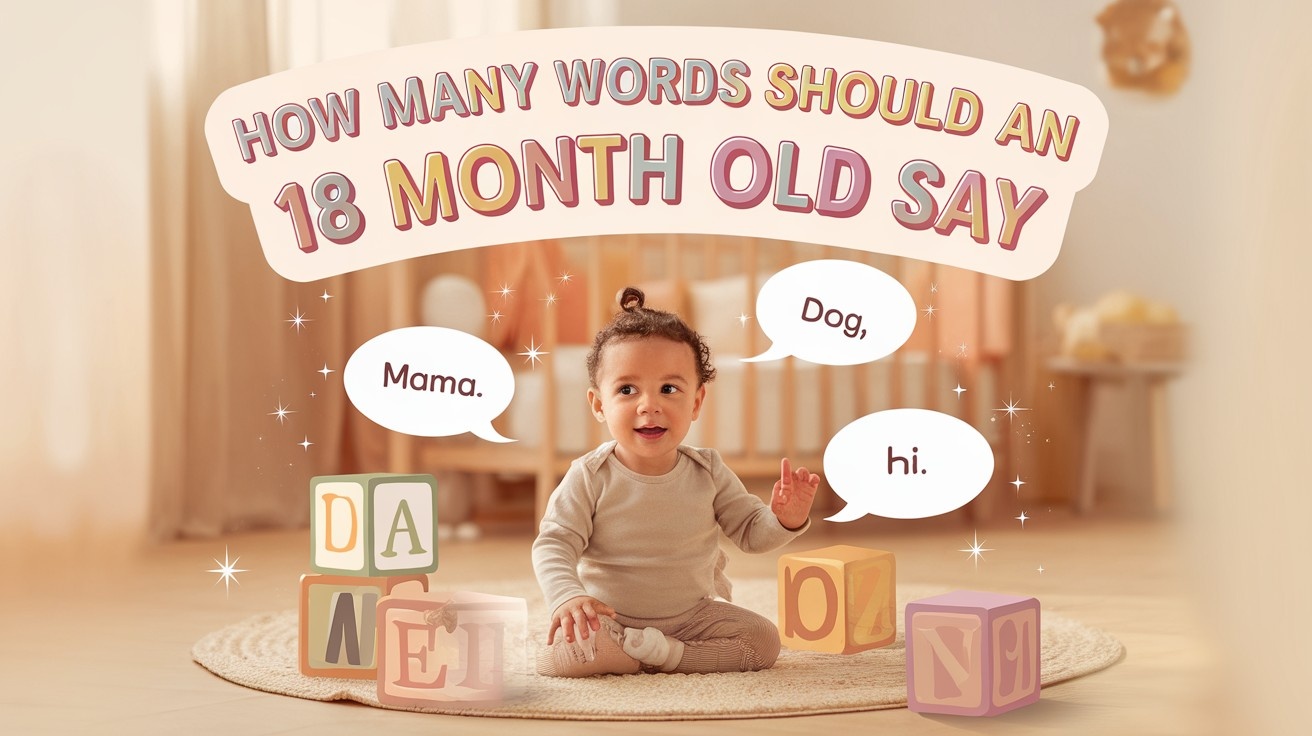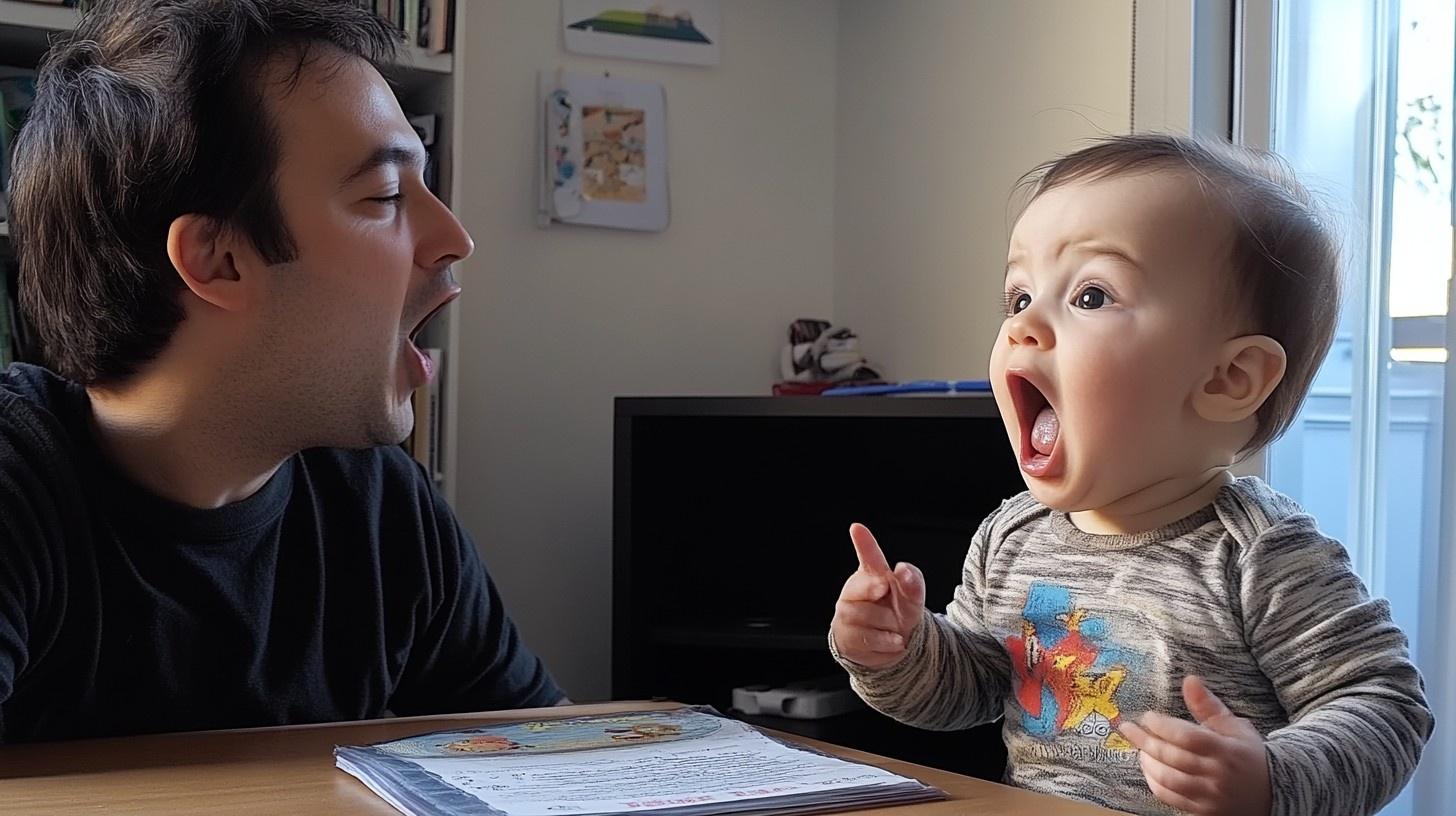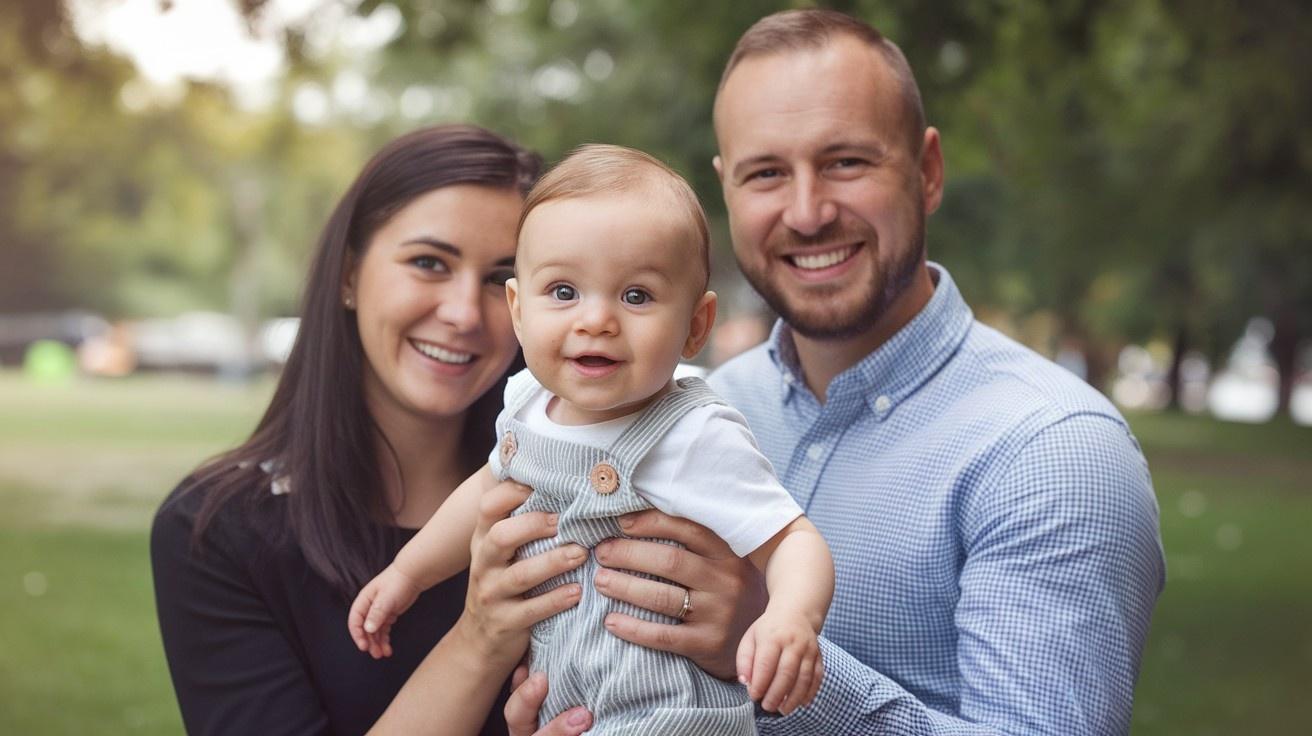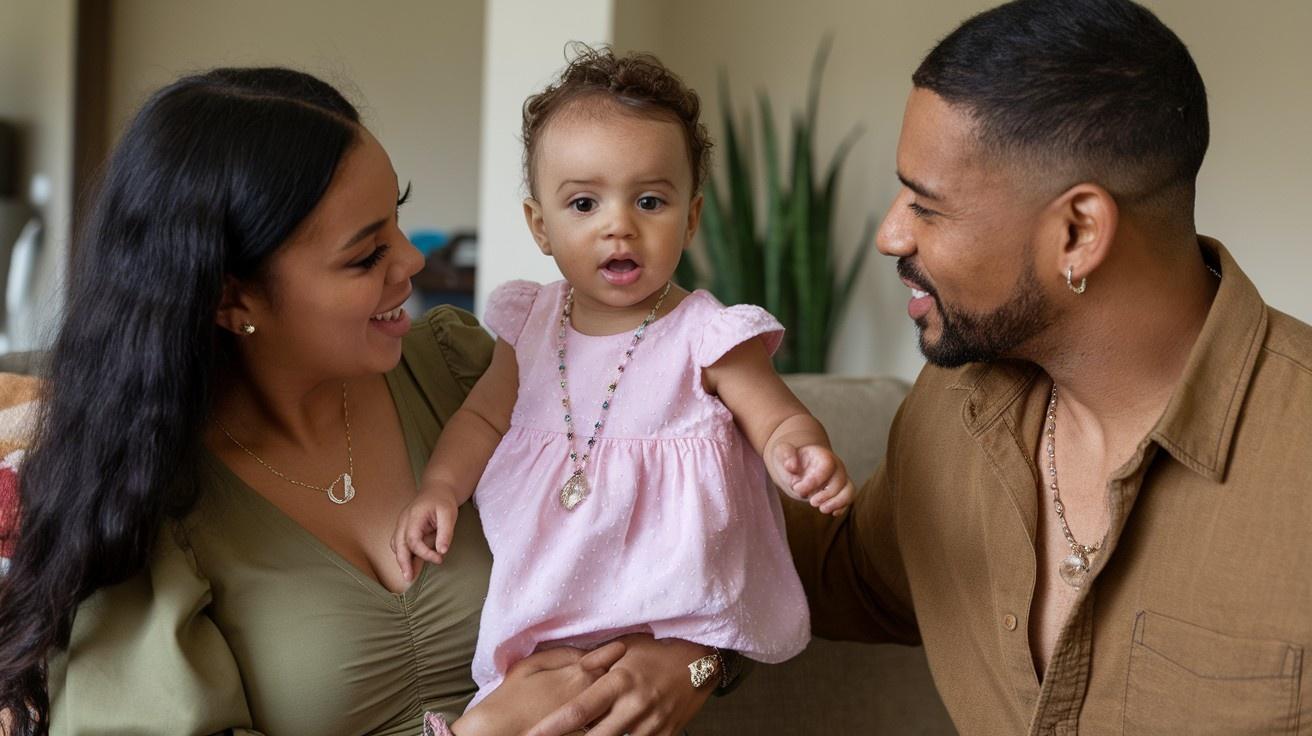
Are you wondering if your little chatterbox is on track with their speech development?
You’re not alone! As parents, we often worry about whether our toddlers are hitting those important milestones, especially when it comes to talking.
Around 18 months, your child’s vocabulary suddenly explodes—but what exactly is “normal” at this age? While every child develops at their own pace, understanding typical word counts can help you spot potential issues early.
From first words to mini-sentences, this crucial stage sets the foundation for your child’s communication skills.
Let’s skim through what experts say about 18-month-old vocabulary milestones, when to celebrate progress, and when to seek professional advice for your budding conversationalist.
Understanding Toddler Language Milestones
Language growth happens rapidly during the toddler years. Most 18-month-olds say 5-20 words and understand many more.
Talking skills (what children say) grow alongside listening skills (what they understand). Both are key parts of development.
Speech develops at different rates for each child. Some talk early, others later, but steady progress matters most.
Parents can help by talking often with their children, reading books together, and responding to babbling. Simple songs and rhymes boost word learning, too.
Regular check-ups help spot potential issues early when support works best.
Overview of Expressive vs. Receptive Language
| TYPE OF LANGUAGE | DEFINITION | TYPICAL DEVELOPMENT | EXAMPLES |
|---|---|---|---|
| Expressive Language | What a child can say using words, gestures, or other forms of communication. | By 18 months, children typically say 10–50 words and start combining two words. | Saying “more juice,” waving goodbye, pointing at a toy while saying “ball.” |
| Receptive Language | What a child understands when others speak or gesture. | Toddlers usually follow simple directions and identify body parts or pictures when asked. | Responding to “Give me the ball,” pointing to their nose when asked, “Where’s your nose?” |
Talking with your child often, reading daily, and singing songs together helps build strong language skills. If you notice your child isn’t meeting these steps, talk with your doctor about your concerns.
How Many Words Should an 18-Month-Old Say?

Most 18-month-old children typically say around 10-20 words. This milestone varies widely among toddlers, with some saying fewer words and others having larger vocabularies.
What’s most important is that your child is making progress with communication.
Common first words often include names for important people (“mama,” “dada”), favorite objects (“ball,” “book”), animals (“dog,” “cat”), foods (“milk,” “banana”), and action words (“up,” “more”). Children also frequently use simple words related to daily routines.
If your child is saying fewer than 5-10 words by 18 months, consider discussing this with your pediatrician.
They can help determine if additional evaluation would be helpful or if your child is developing at their own pace.
What Counts as a Word? Understanding Early Communication

1. Defining a Word in Early Communication
Communication begins long before spoken language emerges. Infants express themselves through a rich variety of sounds, gestures, and meaningful interactions.
A “word” isn’t just a perfect pronunciation but any intentional communication that carries meaning.
2. Beyond Verbal Expressions
Gestures play a crucial role in early communication. Pointing, waving, and facial expressions are powerful tools that children use to connect with their environment.
These non-verbal signals are fundamental building blocks of language development.
3. Intentional Communication
Words are more than sounds. They represent a child’s attempt to interact, share experiences, and understand the world around them.
Each babble, sign, or approximation is a significant step in linguistic growth.
4. The Importance of Interaction
Communication is a vibrant process of connection. Parents and caregivers help children refine their communication skills by responding to their attempts, creating a supportive learning environment that encourages expressive development.
Speech Range at 18 Months

Every child’s language tour is unique, with a wide spectrum of normal development. At 18 months, parents often worry about their toddler’s speech, wondering if their little one is on track.
1. The Typical Speech Range
Most toddlers at this age have a vocabulary ranging from 5 to 50 words. This broad range highlights the incredible variability in language development. Some children are more verbal, while others are more reserved in their communication.
2. Individual Differences Matter
Each child develops at their own pace. Factors like family environment, exposure to language, and individual personality play significant roles in speech progression. Parents should focus on consistent, loving communication rather than strict comparisons.
3. When to Watch Closely
Certain signs might indicate a need for professional evaluation. These include:
- No word attempts by 18 months
- Limited eye contact
- Lack of gesturing or pointing
- Not responding to simple instructions
4. Supportive Strategies
Engage your toddler through conversations, reading, and playful interactions. Narrate daily activities, sing songs, and create a language-rich environment. Patience and positive reinforcement are key to supporting their communication skills.
5. Seeking Guidance
If concerns persist, consult a pediatrician or speech-language pathologist. Early intervention can provide valuable support for children with potential communication challenges.
Remember, every child’s speech tour is beautifully unique. Celebrate their progress and enjoy the magical world of emerging communication.
What Factors Affect Language Development?

Children build communication skills through many channels. Strong adult bonds form the basis for early talking attempts. Physical hearing capacity plays a crucial role. Health concerns may slow speech patterns in young ones.
Each child shows distinct traits that shape how they interact with others. Some speak early, while others take time to form sentences.
Growing up with multiple languages can create unique speech timing. This often leads to greater mental flexibility later on.
Brain growth and motor control also impact how words form. These biological aspects work alongside social factors.
Family support through reading and conversation helps build strong foundations. Such daily practices boost vocabulary growth substantially.
Understanding Delayed Speech Development
Every child’s language tour is unique, but some may need extra support along the way. Recognizing potential speech delays early can make a significant difference in a child’s communication skills.
Early signs might include limited vocabulary, difficulty forming words, or struggling to communicate basic needs.
Parents play a crucial role in monitoring their child’s linguistic progress and seeking professional guidance when concerned.
Pediatric experts recommend a complete evaluation if a child shows constant challenges in speech development.
Specialized speech-language pathologists can provide targeted reviews and personalized intervention strategies to support a child’s communication growth.
Language Development: A Holistic Way
Every child’s growth is an emotional pattern of interconnected milestones. Language development is not an isolated skill but a profound reflection of a child’s overall cognitive, emotional, and motor progress.
Children’s communication skills appear through a soft interplay of neurological, social, and environmental factors.
Each babble, gesture, and first word represents a complex interaction of brain development, emotional understanding, and physical capabilities.
Understanding this intricate process helps parents and caregivers support a child’s comprehensive growth. Recognizing the subtle connections between speech, thinking, and movement provides invaluable insights into a child’s developmental landscape.
Summing It Up
Every child ventures on a fascinating learning experience with their rhythm and style. Understanding this personal trip helps parents create supportive environments that nurture growth and curiosity.
Patience becomes the cornerstone of effective parental guidance. Recognizing that development is a nuanced process allows for more meaningful interactions and realistic expectations.
Regular medical and developmental checkups provide valuable insights into your child’s progress. These professional assessments help track milestones while offering customized strategies to support individual strengths.
Stay connected, remain observant, and celebrate each small achievement. Your consistent involvement converts learning into an enchanting experience of finding and potential.

